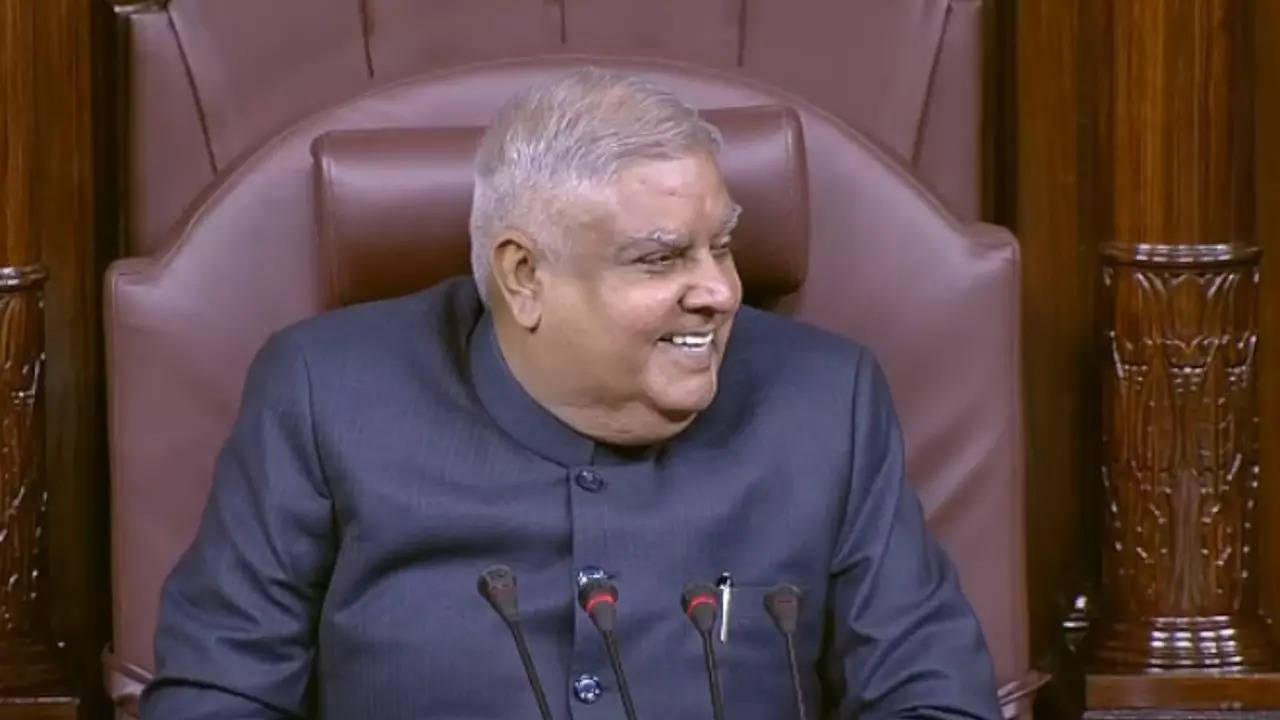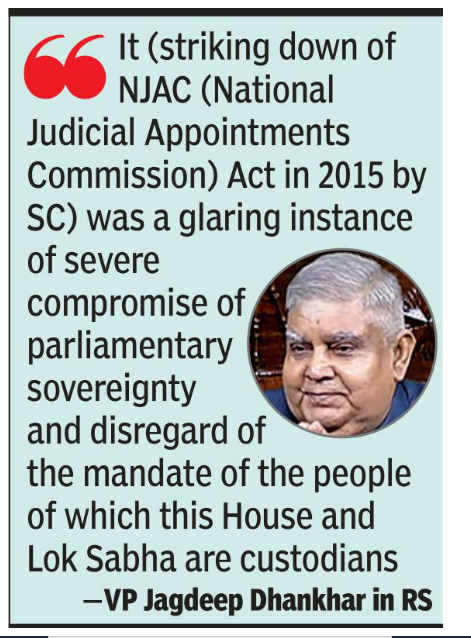
NEW DELHI: Parliament is “duty-bound” to address the Supreme Court’s “overreach” in striking down the National Judicial Appointments Commission (NJAC) Act in 2015 which compromised “parliamentary sovereignty and disregarded the people’s mandate”, Vice President Jagdeep Dhankhar said on Wednesday.
There is no parallel to such a development in democratic history where the “duly legitimised constitutional prescription” of the NJAC through the 99th Constitutional Amendment Bill, passed unanimously by both Lok Sabha and Rajya Sabha, was “judicially undone”, Dhankhar said.
Addressing Rajya Sabha for the first time as its chairperson, he said, “It was a glaring instance of severe compromise of parliamentary sovereignty and disregard of the mandate of the people of which this House and Lok Sabha are custodians.”

The vice president has been raising the matter in different forums over the last few days, which comes amid the ongoing friction between the Union government and Supreme Court over the appointment of judges through the apex court’s collegium system.
In Rajya Sabha, Dhankhar said the “historic parliamentary mandate” for the NJAC was struck down by the Supreme Court in October 2015 by a majority of 4:1 on the ground that it was not in consonance with the judicially evolved doctrine of the “basic structure” of the Constitution.
“We need to bear in mind that in democratic governance, the basis of any `basic structure’ is the prevalence of the primacy of the people’s mandate reflected in Parliament. Parliament is the exclusive and ultimate determinative of the architecture of the Constitution,” he said.
“It is disconcerting to note that on such a momentous issue, so vital to democratic fabric, there has been no focus on it in Parliament for over seven years now. This House, in concert with Lok Sabha, being custodian of the ordainment of the people, is duty-bound to address the issue, and I am sure it will do so,” he added.
Dhankhar said democracy blossoms and flourishes when its three facets, the legislature, judiciary and executive, scrupulously adhere to their respective domains. “Any incursion by one, however subtle, in the domain of the other, has the potential to upset the governance applecart,” he said.







